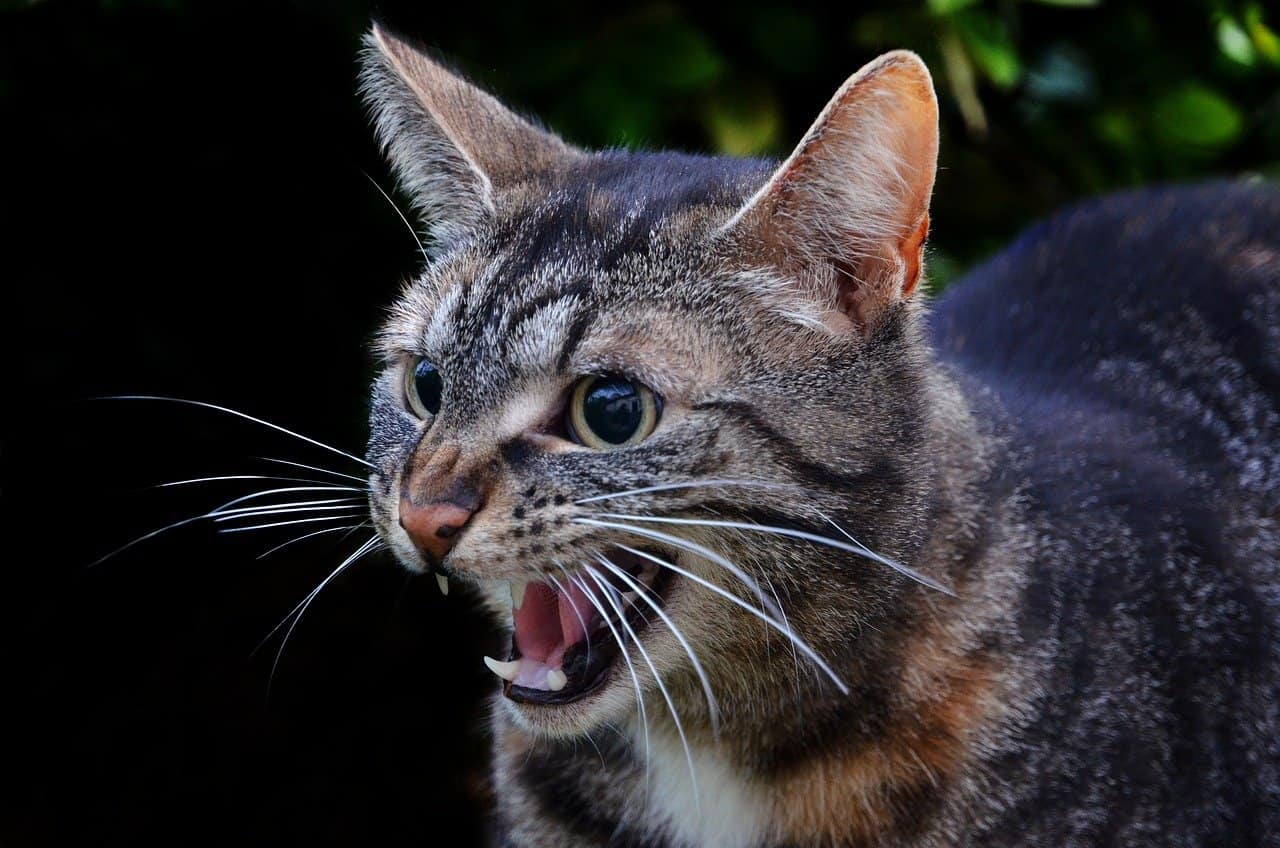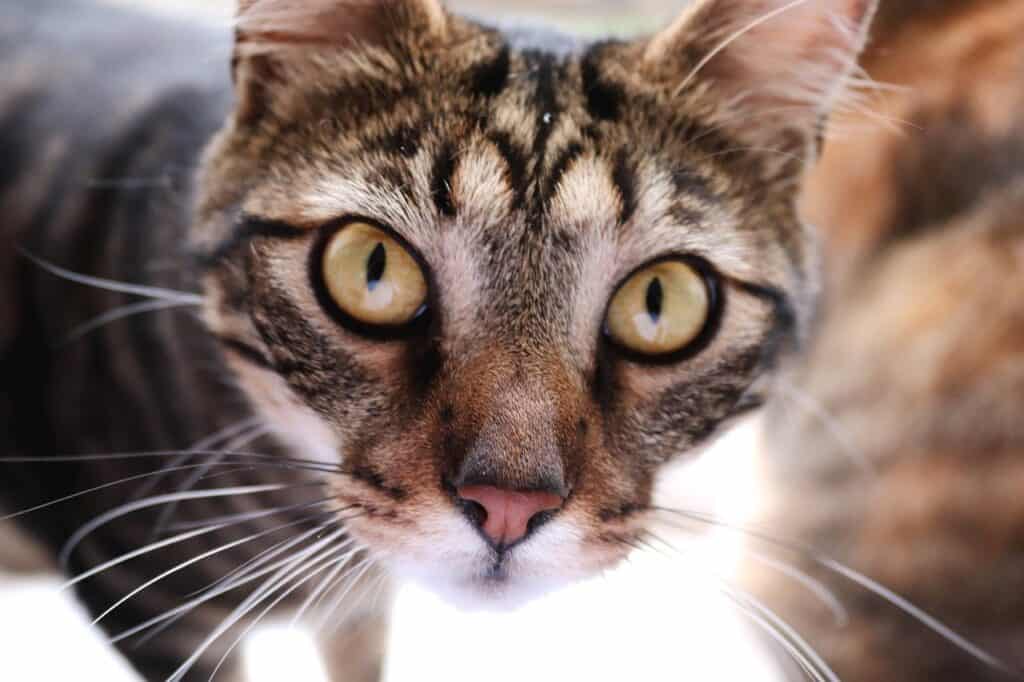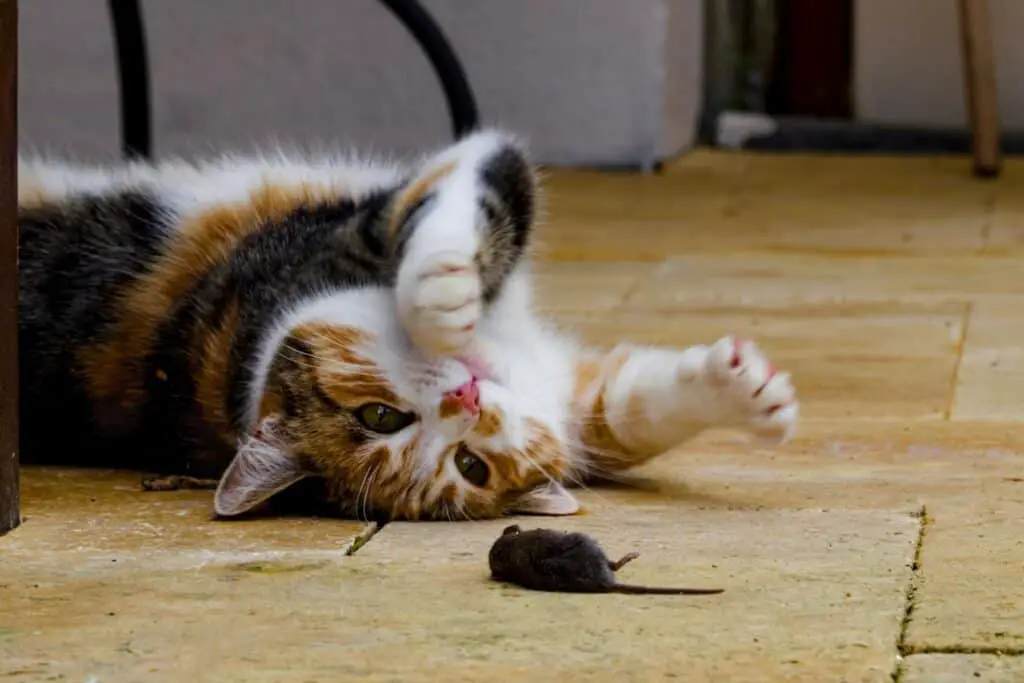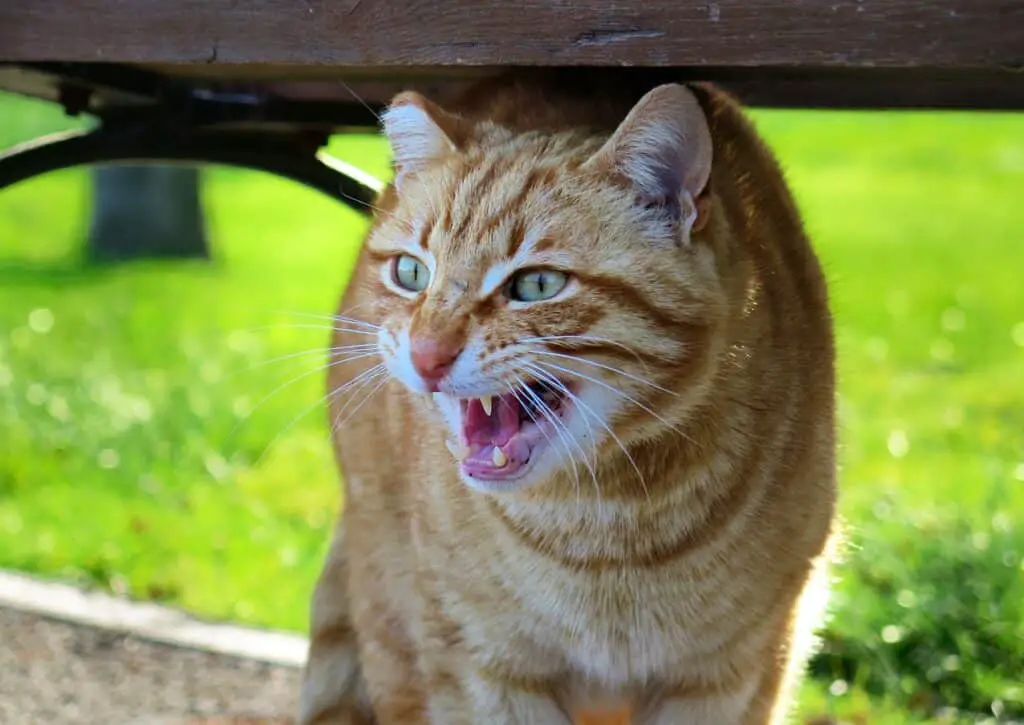Sometimes our cats have a bad day, something frightened them, or they just hate the world and everything in it. If your cat hissed at you and you don’t know why you might want to hiss back at her.
This is entirely understandable to a degree but, does it make sense, and should you hiss back at your cat?
Hissing back at your cat is not a good idea. Cats hiss for specific reasons such as fear or pain. Hissing back will very likely confuse your cat or, even worse, frighten her even more. When your cat hisses at you, the best thing to do is just give her some space until she has calmed down.
Why should you not hiss back at your cat?
Hissing back at your cat, although sometimes understandable, is not a good idea.
The reason for this is that it will probably confuse your cat and make the problem worse. By hissing back, you will certainly come across as aggressive and your cat will interpret that as a thread. This may trigger your cat to respond, potentially attacking you.
Actually, it’s also a bit weird from a cat’s perspective.
Your cat is trying to communicate that it wants to be left alone. By hissing back you are basically punishing them for that and that shouldn’t be the case. It’s perfectly fine for your cat to need some time by herself and you shouldn’t be offended by that.
Don’t take it personal.
Picture yourself complaining about something to someone else. What if that person just responds why complaining about their own stuff, without acknowledging you?
That would be really strange and a bit rude,… That is what it seems like to your cat when you hiss back at them.
Why do cats hiss?
Let’s first look at why cats hiss at something or someone in the first place.
As a general rule, cats hiss to give off a warning signal. It means that they want to be left alone. It’s not uncommon for cats to attack if this signal is ignored. There are several reasons why cats hiss, but the most common reason is that they are highly annoyed by something, or they are in pain.
Cats hiss by releasing a sudden burst of air through their mouth, making the familiar hissing sound. Usually, this is accompanied by strong body language such as raised fur, ears pointing backward, a flat tail, and bare teeth.
Hissing noises are widely used in nature by animals to signal fear or adversarial situations. The most well-known example is a snake, but some birds or insects also use hissing sounds to defend themselves, as do cats.
Reasons why a cat hisses
Remember that it is entirely natural for cats to hiss. It is a way for them to communicate fear or discomfort, and as a cat owner, it is good to understand the reason for the distress.
- As a warning – meaning, “don’t come closer”. Cats might attack by scratching or biting if you ignore this warning.
- To tell you she’s in pain – Cats also hiss when they’re in pain. Since cats are generally really good at hiding health issues, when you see this, it is really serious.
- Cats might hiss because of fear or unfamiliarity – because they are scared or confronted with an unfamiliar person or situation.
- Caused by stress – Stress could cause fear or the need for your cat to be left alone.
- Due to rough play – When playing too rough, your cat might hiss to let you know that she’s not enjoying it and it is too rough.
- Because she’s annoyed and wants to be left alone – Sometimes your cat might be in a bad mood and just wants to be left alone. When you approach her, and she greets you with a hiss, then it might be best to stay away for a while.
If your cat hisses at you because of something you did, you may want to apologize to your cat.
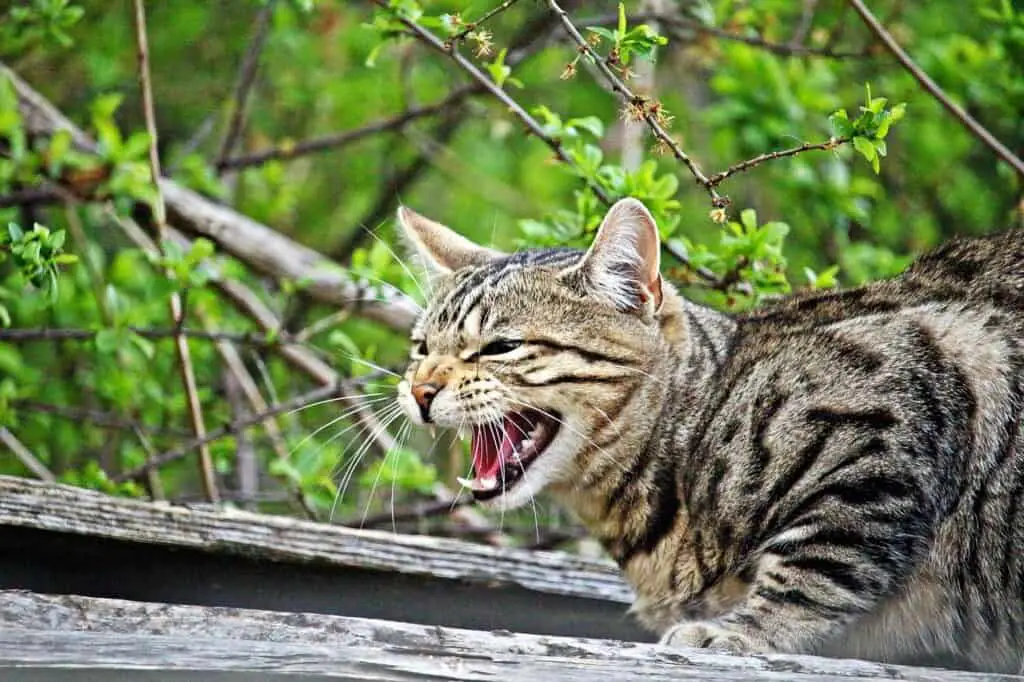
What to do when your cat hisses at you?
First and foremost, keep your distance. Hissing means that your cat wants you to stay away. Give her some space.
If there are children in your household, explain to them what it means if the cat hisses at them. They might not understand it and provoke your cat.
When a cat hisses, it is because they are not comfortable with the situation or annoyed about something. Most of the time, they just need some alone time. For this reason, it’s good to provide some hiding places in your home where they can retreat when feeling stressed.
Cat towers or cat igloos are great for that because they’re a comfortable place for your cat to get some rest and let her bad mood blow over.
What if your cat hisses because she is hurt?
In some cases, cats hiss because they are in pain. When you see this, you can be sure that they’re in a lot of pain because usually, cats are masters at hiding pain or sickness.
If pain is causing the hissing, it’s best to observe your cat for a while. Other tell-tale signs of pain are:
- Repetitively licking or biting the same spot over and over.
- Loss of appetite.
- Limping or shuffling while walking.
- Dilated pupils.
- Panting.
- Messy and/or dirty fur, from the inability to groom themselves.
If you notice any of these symptoms, your cat may be in pain. It’s best to contact your vet and discuss what to do next.
Make sure you’re wearing some protective clothing when handling your cat in this situation because they might bite or scratch you. Generally, it’s best not to touch or move your cat when she’s in pain, but you may need to get her to the vet.
What if cats randomly hiss?
Cats seldomly hiss at random. Most of the time, there is an apparent reason. This can be a thread, an annoyance, or pain.
However, some cats have behavioral issues which might cause them to hiss seemingly at random to people. Although this is probably because of fear (we often see this in abused cats), you should never punish a cat for hissing.
There are ways to deal with this, and your veterinarian can help and give you some valuable and helpful advice.

